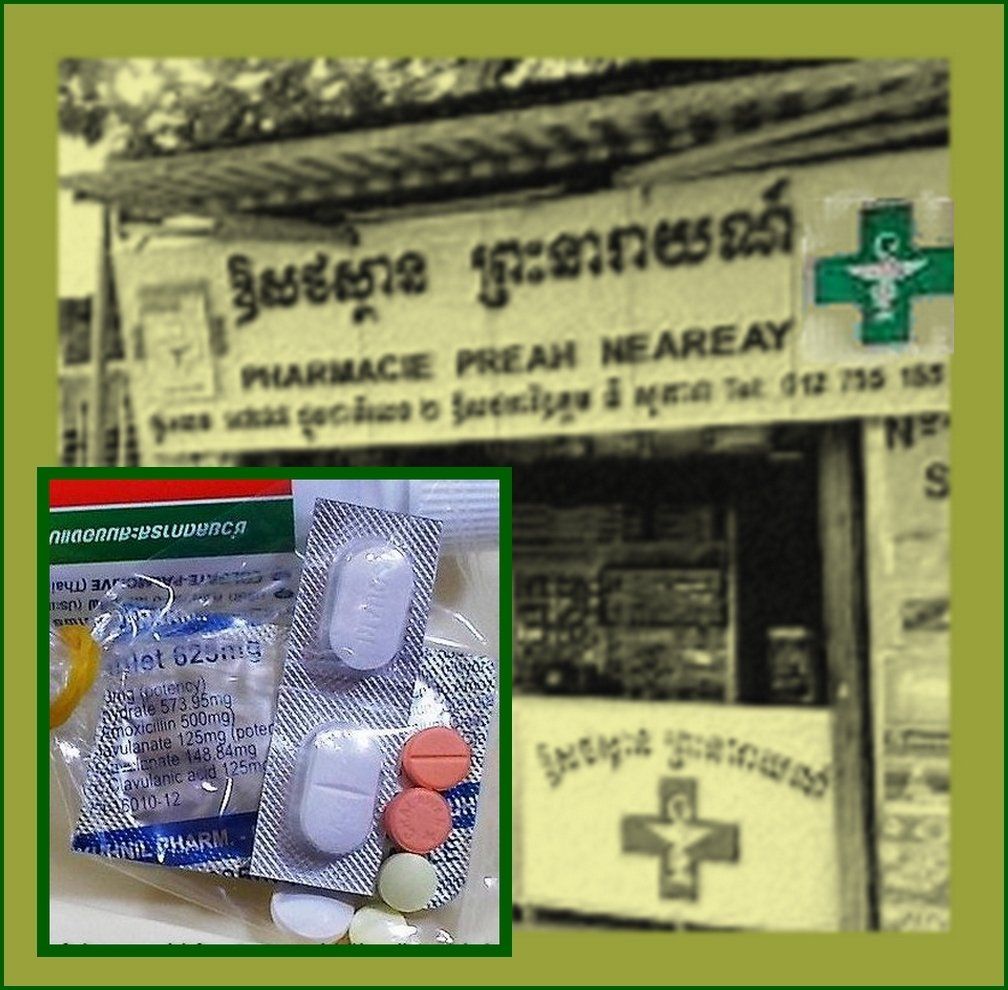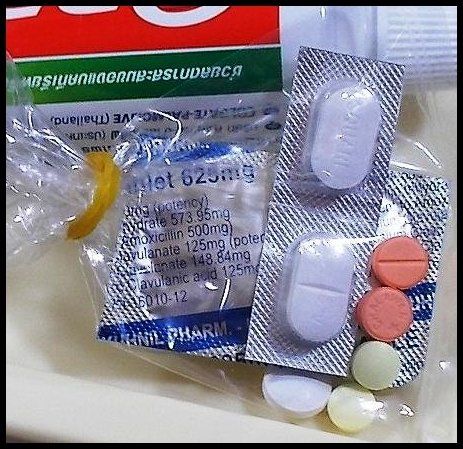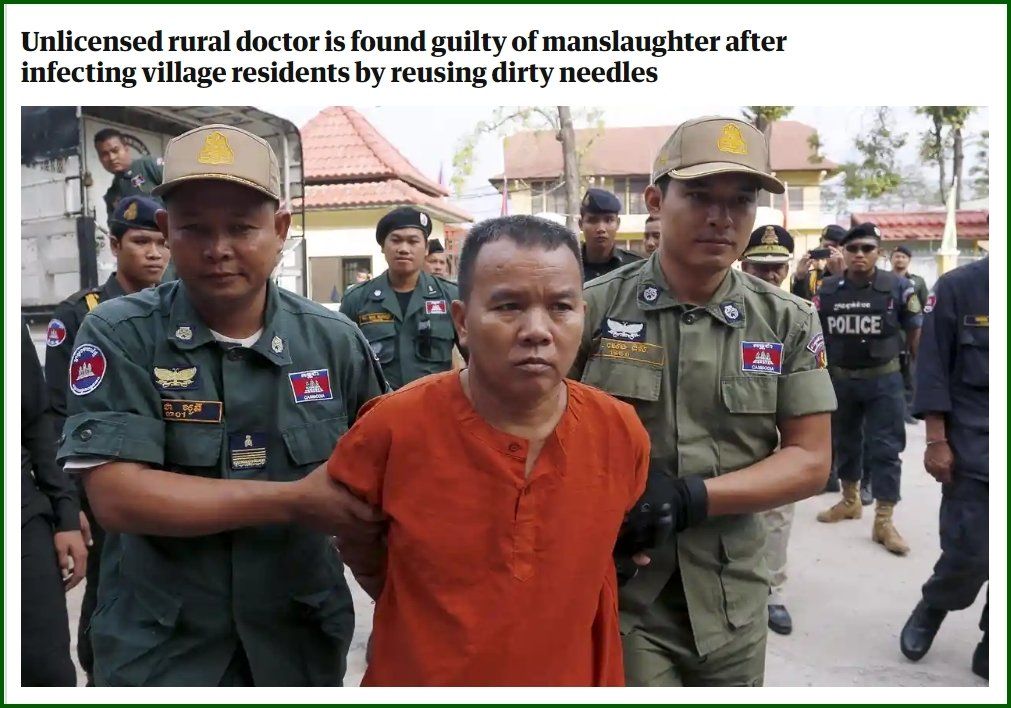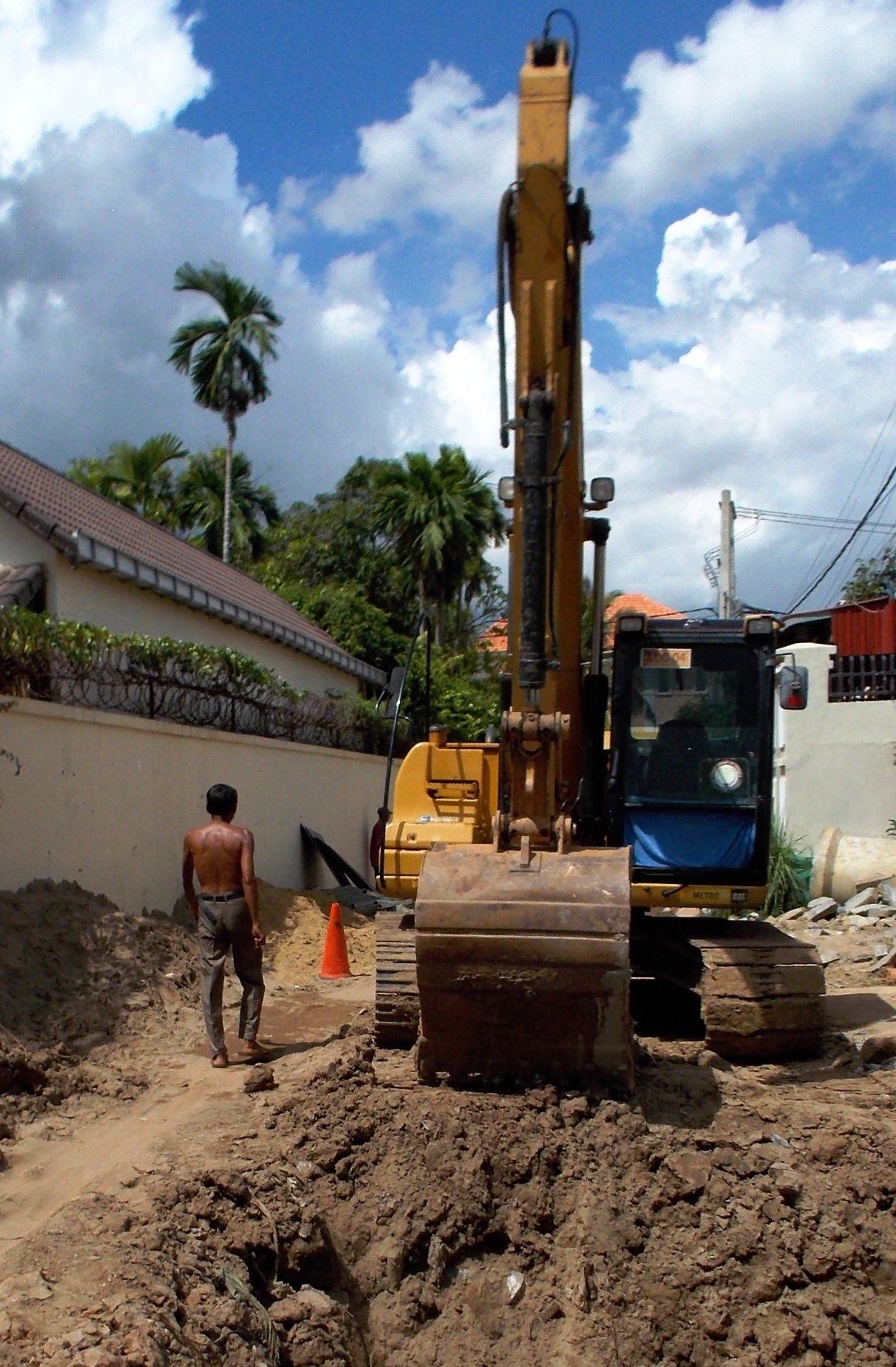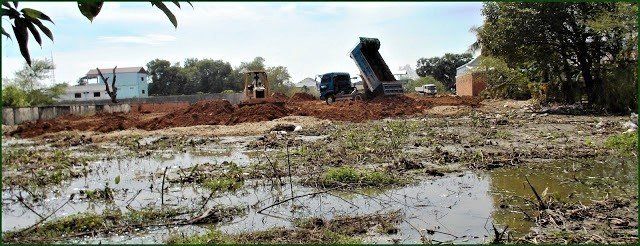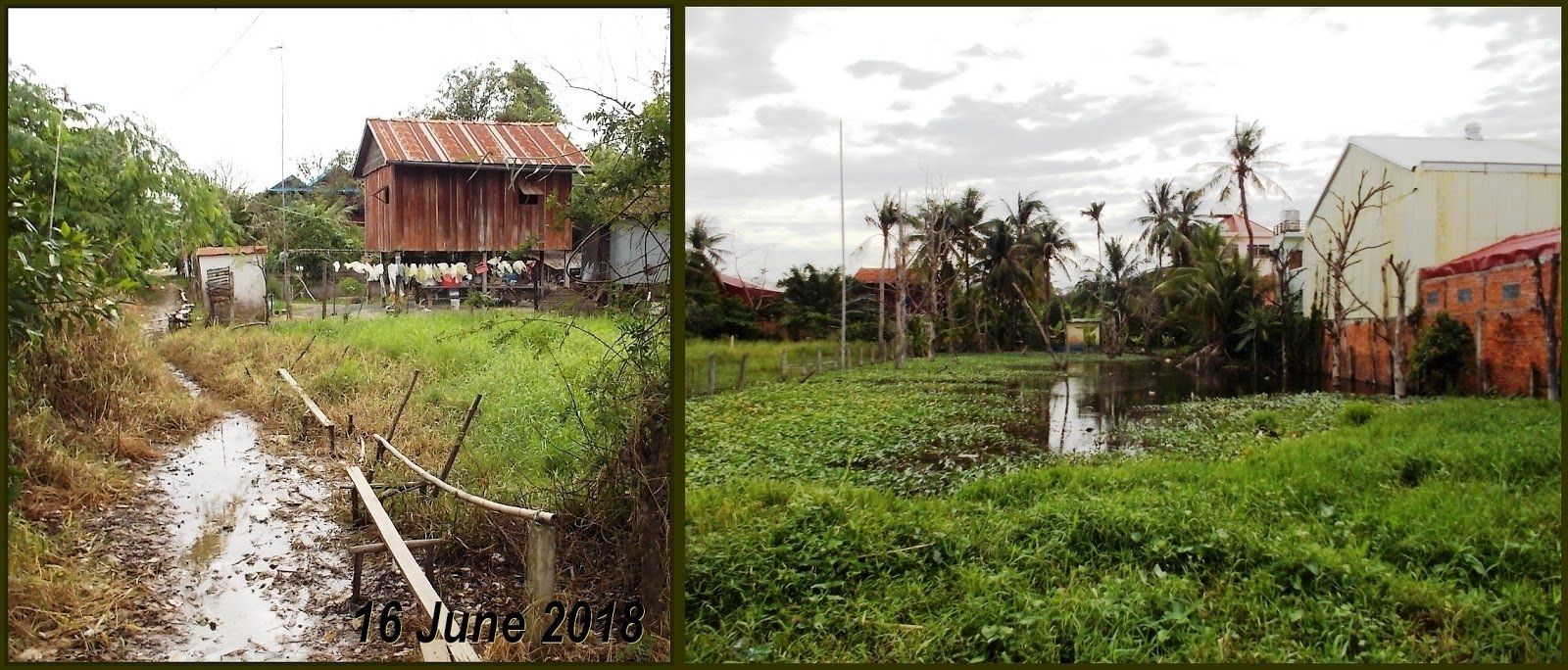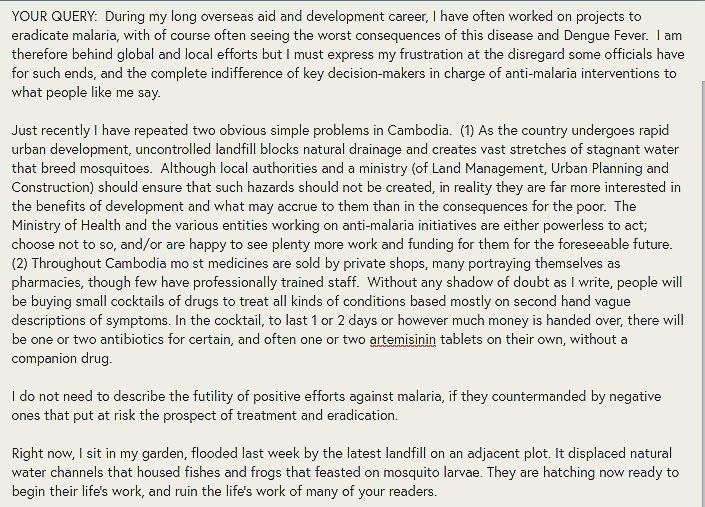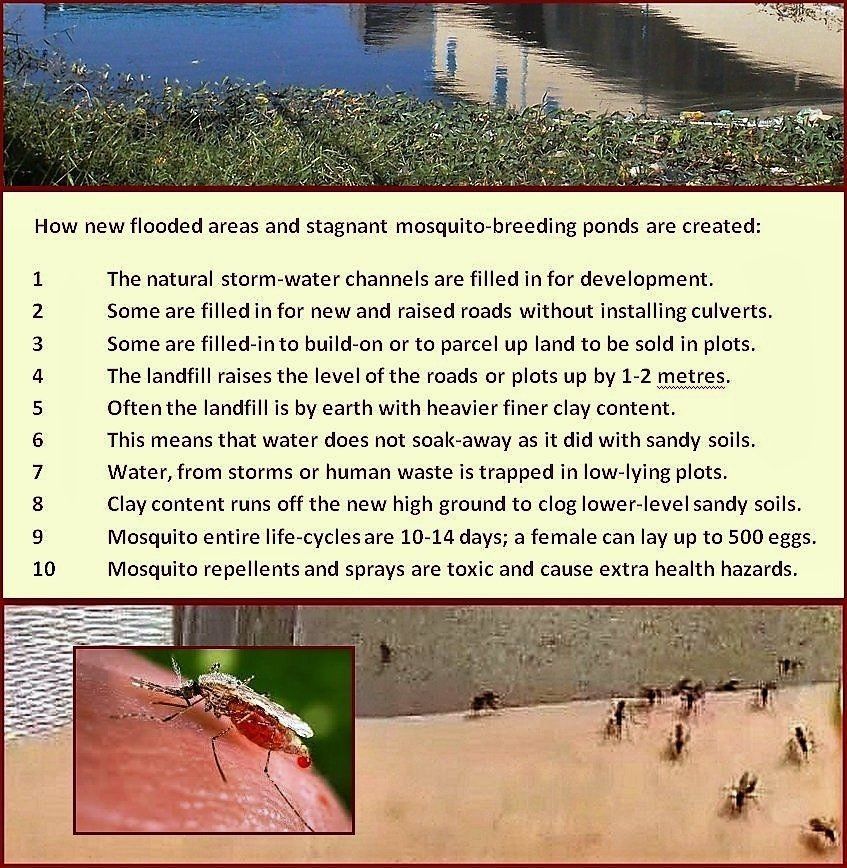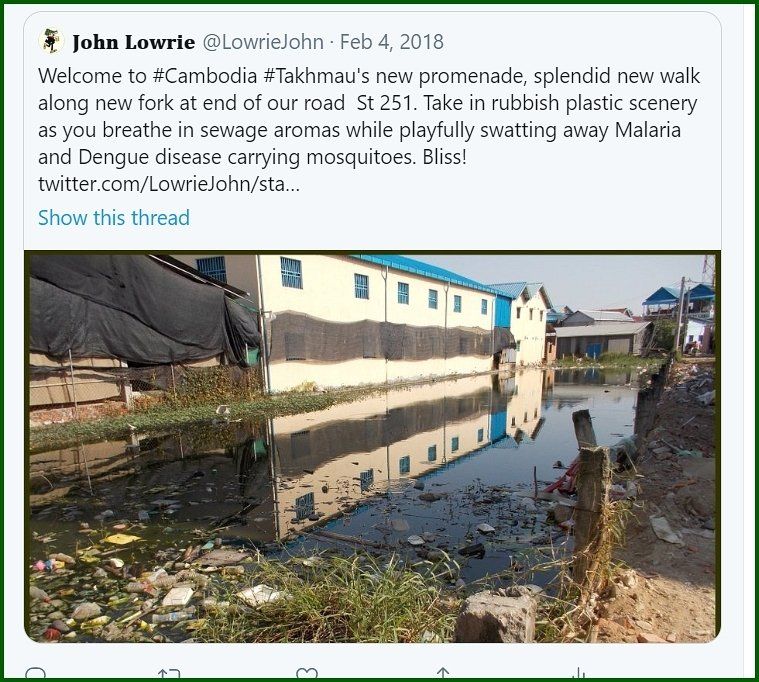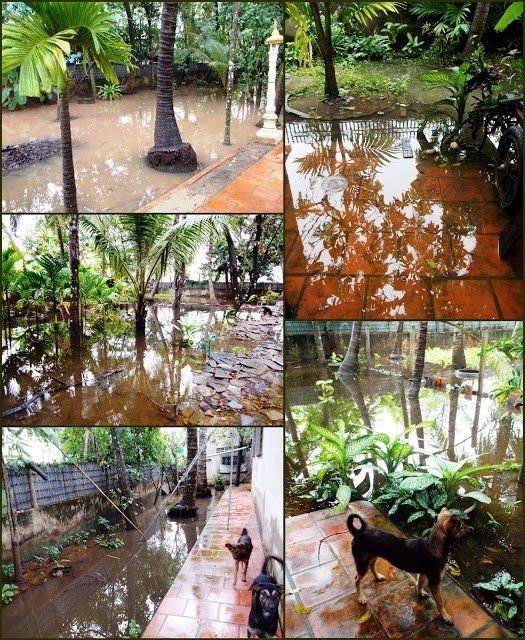Cambodia: Major Threat to World Health.
Not hyperbole: In Cambodia there is growing resistance to front-line drug treatment for Malaria, due largely to mis-use of anti-malarials and antibiotics. In addition simplest most obvious measures are not taken to prevent mosquitoes from breeding. Strange as it may seem all major health stakeholders - medical professions; administrators, global health bodies, donors and researchers are impervious to my warnings.
You can lead a horse to water but you can't make it drink!
Please go to this Twitter Moment
for a quick overview.
Not one major health stake-holder has replied to my messages.
An amazing amount of Foreign Aid goes in to the health sector in Cambodia, probably the largest external intervention is via the Global Fund to Fight AIDS, Tuberculosis and Malaria.
I do seriously question the Global Fund's management especially its unwillingness or inability to hold the government to account to take elementary measures across public services to prevent hazards such as mosquitoes and improper sales of antibiotics and anti-malarials.
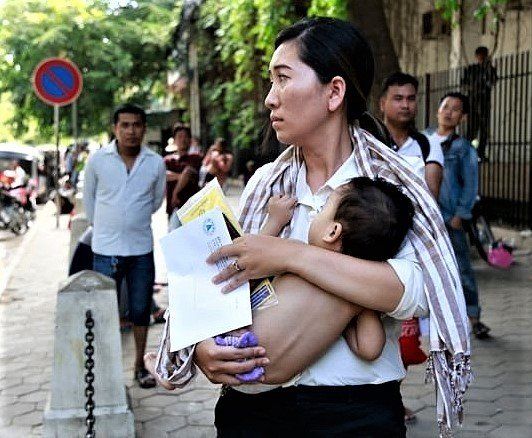
Frantic mothers carry their babies from faraway for reliable free diagnosis and treatment.
My first doubts about the Global Fund's management in Cambodia were confirmed when
major corruption was discovered within its governmental partner, the National Malaria Centre. Those responsible have never been held fully to account. The official Anti-Corruption Unit decided to
take no further action even though it has powers to prosecute. The Global Fund and its donors did not press them to do so. Soon after they resumed normal business.
Two Big Health Hazards
1. Drug resistance and professional negligence.
The Cambodia Government, especially the Ministry of Health does not face up to tackling issues. One is proliferation of untrained and unlicensed medical and pharmacy businesses in every settlement, urban and rural, throughout the country. The most
extreme case is of a bogus doctor who contaminated patients with tainted blood. As well drugs - many donated to Cambodia - being sold without proper prescriptions by qualified doctors, patients do not take them properly, and they are given to children and at-risk groups despite warnings not do so. Many are potentially lethal
fake drugs.
Little wonder that first-line and in some cases the only drug remedies are failing in Cambodia posing a grave risk to the outside world.
2. Creation of serious health hazards - breeding ponds for water-borne diseases and traps to drown children.
Phnom Penh and other urban areas have experienced vast construction developments over the last 10 years. The city is built on the low-lying flood plain of the River Mekong at the confluence of the Tonle Sap and Tonle Bassac tributaries. Almost everywhere new roads and building sites are land-filled to raise them above flood-levels. To do this considerable sand-pumping and extraction of earth - digging deep holes - takes place, creating literally tens of thousands of ponds where Malaria and Dengue mosquitoes breed. Contamination is made worse by wanton dumping of waste and sewage-seepage. Numerous cases of children drowning
are also reported. It is hard to believe that not one major health stake-holder takes action even though these negligent actions counteract and undermine their work.
Not only are these hazards enormous risks in their own right, but of course they mean that elimination of diseases like Malaria and Dengue Fever in Cambodia and around the world is farther away, not nearer contrary to aspirations
and even claims otherwise. I must add that official figures in Cambodia should not be believed. Most illnesses and causes of death are not reported officially. Sad but true: far more money and effort is expended on funerals
than keeping people alive.
Address: Street, City, County and Postcode
mymail@mailservice.com


